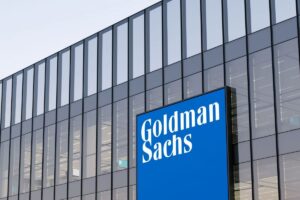
The Ukrainian one-dollar store chain Aurora opened 235 new stores in Ukraine in 2025, with the chain’s revenue amounting to UAH 58.6 billion (including VAT), which is 28.6% more than in 2024, the chain’s CEO Taras Panasenko said on Facebook.
He said that in 2025, more than 12 million customers chose Aurora stores more than 370 million times, and the Net Promoter Score (NPS) rose to 59 points.
“We are strengthening our support for Ukrainian manufacturers: about 50% of our assortment consists of goods from Ukraine, from more than 600 manufacturers, 36 of which export products to 65 Aurora stores in Romania. An important event of the year was also obtaining AEO (Authorized Economic Operator) status, which confirms that the company operates completely “in the white” and according to all the rules,” Panasenko emphasized.
Over the year, Aurora paid more than UAH 8.6 billion in taxes, entering the top 20 largest taxpayers in Ukraine and becoming the largest taxpayer in the Poltava community (UAH 288.4 million in personal income tax). The company’s support for social and charitable projects amounted to UAH 322 million.
“Importantly, we have created the roles of Chief Veteran Officer and Chief Inclusion Officer and are developing veteran and inclusive initiatives as part of our systematic work. More than 140 veterans, including defenders with disabilities, already work at Aurora,” he said.
Aurora was founded in 2011 by Lev Zhydenko, Taras Panasenko, and Lesya Klymenko. By the end of 2025, the chain will have over 1,700 stores in Ukraine and 65 in Romania. The retail chain’s headquarters are located in Poltava.
According to Opendatabot, the owner of Vygidna Pokupka LLC, which develops the chain, is the Cypriot company Aurora Retail Investments Limited, its beneficiary is Lev Zhydenko, and among the owners are funds managed by Horizon Capital.
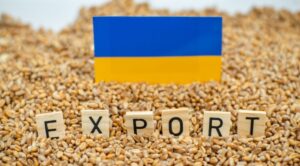
The LNZ Group agricultural holding exported about 2 million tons of agricultural products in 2025, according to the press service of the agricultural holding, citing data from the director of LNZ Export, Volodymyr Humenyuk.
The agricultural holding noted that after acquiring the SEZ, LNZ Group became one of the leaders in oilseed processing, focusing on rapeseed and soybeans. Processed products are also sold on foreign markets, where the company has strengthened its position and established itself in the premium segments.
“About 90% of exports are carried out through the ports of Greater Odessa. Throughout the year, LNZ Group expanded its presence primarily in the EU markets, cooperating with both multinational corporations and local processors in Italy, Spain, the Netherlands, Greece, etc. Products were also supplied to neighboring Poland, Hungary, and Romania, as well as to countries in the Middle East, North Africa, and Asia,” said Gumenyuk.
Roman Franchuk, Director of Agricultural Production at LNZ Group, emphasized that, in general, the past season in the agricultural sector was difficult for LNZ Group due to weather conditions—a cold spring, a cool start to summer, and a prolonged drought reduced yields in the company’s fields in the central region. The situation was better in the Sumy cluster, but harvesting there was complicated by constant attacks from enemy UAVs. In the Vinnytsia region, where it rained, technical crops were harvested with high yields. In the Rivne cluster, due to prolonged rainfall and late soybean vegetation, harvesting is still ongoing, while early grains, in particular wheat, yielded about 6 t/ha.
The holding achieved planned yields on 200 ha of vegetable crops thanks to drip irrigation. They grew onions, peppers, tomatoes, rhubarb, cauliflower, and broccoli. Next year, they plan to expand the area under vegetables and add carrots and table beets. Raspberries and strawberries also showed high yields, and the area under them will also be increased.
“Taking into account the season, the company has revised its crop structure for 2026: it has increased the area under rapeseed to 11,000 hectares, under winter wheat to 17,000 hectares (12,000 hectares a year earlier), and has also expanded the area under peas to 3,000 hectares (usually 500 hectares). The area under sugar corn for the needs of the TEVITTA freezing plant remained unchanged at 750 hectares,” Franchuk summed up.
LNZ Group is a vertically integrated agricultural holding company with its central office in the village of Lebedyn, Cherkasy region. It specializes in the cultivation of grain, industrial, and berry crops, seed production, as well as the distribution of plant protection products (TM DEFENDA) and seeds (TM UNIVERSEED).
The holding’s land bank covers more than 80,000 hectares in the Cherkasy and Sumy regions. It has a network of elevators with a total capacity of about 170,000 tons, as well as modern storage facilities with an area of more than 50,000 square meters and refrigeration complexes with a capacity of 8,000 tons.
LNZ Group has a number of processing plants. The Lebedyn Seed Plant (corn division) specializes in the full cycle of corn seed processing with a capacity of up to 330 tons/day. The multifunctional seed plant cleans and calibrates wheat, soybeans, and sunflowers (up to 200 tons/day). The oilseed processing plant specializes in the production of soybean and rapeseed oil and meal.
The Tevitta frozen food plant specializes in flash freezing berries, vegetables, and fruits (IQF technology) with a capacity of 10,000 tons per year. The Shpola food factory (TM “Zhayvir”) produces snacks, halva, kozinaki, etc.
The main beneficiary of the group is Dmytro Kravchenko.
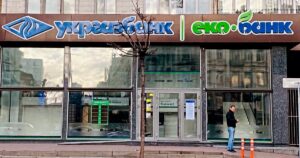
State-owned Ukrgasbank has signed a new guarantee agreement with the European Investment Bank (EIB) and the European Investment Fund (EIF) under the EU4Business Guarantee Facility Ukraine program, which is expected to provide more than €31 million in financing to Ukrainian businesses, the financial institution said on Thursday.
“By working with strong local partners such as Ukrgasbank, the EIB Group is helping to ensure that Ukrainian businesses have access to vital financing when they need it most,” said EIB Vice President Teresa Czerwinska.
The bank specified that the support extends not only to small and medium-sized businesses, but also to labor-intensive enterprises with up to 500 employees. Priority will be given to companies owned or managed by veterans, internally displaced persons, women, or entrepreneurs under the age of 36, as well as businesses in regions most affected by the war.
According to the announcement, the guarantee mechanism will cover 30-80% of the credit risk for individual transactions and will apply to investment loans, working capital financing, and documentary transactions, including bank guarantees and letters of credit. Financing is provided for a term of 6 to 84 months in hryvnia, euros, or US dollars, in particular with reduced collateral requirements.
The financing was made possible with the support of the European Union under the Ukraine Facility program.
As reported, in terms of the number of loans serviced as of December 1, 2025, under state guarantees on a portfolio basis, Ukrgasbank ranks third with over 1,000 loans worth UAH 10.4 billion, or 69% of the limit of such guarantees provided to the bank.
Ukrgasbank is the fifth largest bank in Ukraine in terms of assets: according to the National Bank, as of December 1, 2025, they amounted to UAH 208.24 billion.
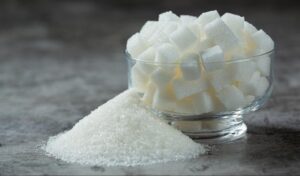
Sugar production in Ukraine in the 2025-2026 marketing year has already reached 1.615 million tons, but the sugar season is not over yet, said Yana Kavushevska, head of the board of the National Association of Sugar Producers Ukrtsukor, in an interview with Interfax-Ukraine.
“According to our expectations, sugar production in 2025-2026 MY will exceed 1.7 million tons. As of January 10, the factories that are members of the association have produced 1.615 million tons,” she said.
Kavushevska specified that in 2025, sugar beets were grown on 199,000 hectares in Ukraine, with a yield of 58 tons/hectare, and 11.4 million tons were harvested. The 27 sugar factories that are members of Ukrtsukor and operated in the 2025/26 marketing year received 10.8 million tons for processing, but beet deliveries are still ongoing.
Kavushevska noted that the industry association had expected a smaller sugar beet harvest and a smaller volume of sugar produced, but good weather conditions helped farmers achieve higher yields than last year. She recalled that last year, 250,000 hectares were sown with sugar beets, the yield was 55 tons/hectare, and 29 sugar factories produced 1.812 million tons of sugar.
Ukrtsukor specified that domestic sugar consumption in Ukraine before the full-scale war, even after the loss of Crimea and parts of Donetsk and Luhansk regions, amounted to 1.2-1.3 million tons, and is currently 300-400 thousand tons less. Therefore, it is desirable for Ukraine to export at least 700,000 tons in the current marketing year.
According to Kavushevska, the geography of Ukrainian sugar exports in 2026 is unlikely to change—it will be countries with convenient logistics, the cost of which allows Ukraine to be competitive compared to other global producers.
“In 2025, Ukraine exported 464,000 tons of sugar, 27% of which went to the European Union, and the rest was supplied to the world market (…) to countries in the Middle East and the Balkans. The undisputed leader in the purchase of Ukrainian sugar in 2025 is Lebanon (71,000 tons), while a year earlier it was Turkey with a similar volume. In second place is a European Union country – Bulgaria (66,000 tons), third is North Macedonia (39,000 tons), fourth is Libya (34,000 tons), and fifth is shared by Syria and Turkey (over 27,000 tons each),” said the chair of the board of Ukrtsukor.
According to Interfax-Ukraine, an informed source in the market reported that in the 2025 season, 3,000 hectares of sugar beets remained unharvested in Ukrainian fields, mainly in the Vinnytsia and Khmelnytsky regions. Due to rain during the harvesting period, farmers did not risk bringing their equipment into the fields for fear that it would get stuck. According to experts, it is quite possible that these sugar beets will be able to overwinter in the fields under the snow and will likely be suitable for processing. Assuming maximum losses (13% yield) after the snow melts, sugar factories will hypothetically be able to produce approximately 22,600 tons of sugar.
As reported, in Ukraine in 2024/25 MY, sugar production amounted to 1.812 million tons, which is 6.2% more than in the current year.
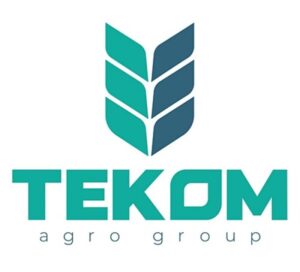
In 2025, Tekom Agro Group increased its land bank by 1,270,000 hectares, bringing its total area to more than 26,000 hectares, the company’s press service reported on Facebook.
Sergey Shtyrbulov, deputy head of the agricultural association for production, noted that in 2025, winter crops, in particular rapeseed, barley, wheat, and peas, occupied 80% of all areas, while 20% of the areas were allocated for sunflowers and lentils.
“We are already planning to sow lentils, sunflowers, and a new crop for us — flax. It will be sown in the Chernomorets division and partly in the north. In the spring, as soon as we conduct a survey of the meter-deep soil layer and find out the amount of precipitation, we will make a decision on crop rotation. If there is up to 100 mm of precipitation, we will most likely exclude sunflowers. However, this will allow us to expand the area under flax and lentils,” said Shtyrbulov.
According to him, the condition of winter crops in the agricultural association is currently assessed as satisfactory, and in some places better than satisfactory.
According to Shebulov, Tekom Agro Group began implementing Verti-till technology in 2025, which helped reduce cultivation costs by approximately $1 million. In fields where conventional tillage was used, yields were half those achieved with Verti-till.
Tekom Agro Group is a modern agricultural association operating in the Podolsk, Odessa, Belgorod-Dnestrovsky, and Razdelnyansky districts of the Odessa region. The management company, Telekom Agro Group LLC, was founded in 2021. The group unites four farms: Yasnye Zori LLC, Chernomorets LLC, Agrofirma Pivdenna LLC, and Liman LLC. It specializes in growing grain and oil crops. It owns two elevators with a total simultaneous storage capacity of about 100,000 tons.
The group is part of the sphere of influence of the shareholders of Pivdenny Bank. Its ultimate beneficiaries are Yuriy Rodin and Mark Becker.

S1 REIT has published the results of a scheduled revaluation of S1 VDNG fund assets as of the end of 2025. According to the conclusions of an independent appraiser, the market value of real estate in the fund’s portfolio shows stable positive dynamics.
Key valuation indicators:
Value dynamics: the average price per square meter increased from $2,124 (at the time of acquisition) to $2,244 (as of December 31, 2025).
Net capitalization amounted to +5.7% in currency terms for the reporting period.
The growth in the value of S1 REIT’s assets correlates with general market trends. According to LUN, the secondary real estate market in Kyiv showed positive price dynamics in 2025. The average price per square meter increased by 11% in currency terms.
“S1 VDNG is primarily an income fund where investors receive ‘live’ money every month. However, it is important to understand that the total return on our instrument consists of two parts: regular dividends from rental activities and the capitalization of the asset itself. We buy real estate that not only works but also becomes more expensive every year thanks to its successful location and effective management,” comments Viktor Boichuk, commercial director of S1 REIT.
The S1 VDNG fund continues to demonstrate stable payments. Since April 2025, investors have been paid dividends totaling UAH 1,229,818.99. The price of one investment certificate as of January 14, 2026, is UAH 1,100.4, which is 10.04% higher than the price of the certificate as of April 9, 2025.
“We are grateful to investors who believed in the REIT model in Ukraine. Today, we see synergy: according to the results of 2025, the fund received 8.4% per annum in dollars or 11.7% in hryvnia from leasing. And the total annual return, taking into account rental activity and capitalization, is 16.9% in dollars or 20.5% in hryvnia,” adds Viktor Boichuk.
About us:
S1 REIT is a real estate investment fund specializing in income-producing real estate in the Build-to-Rent format. The fund operates under the Real Estate Investment Trust (REIT) model, providing investors with the opportunity to participate in the ownership and income generation of income-producing properties without directly managing the assets.
Currently, S1 REIT has two funds in its portfolio: S1 VDNG and S1 Obolon. The funds’ assets are apartments in income-generating buildings from the developer Standard One.
* Past performance of the fund is not a guarantee of future returns. Before investing, please read the terms and conditions and consult with a financial advisor.